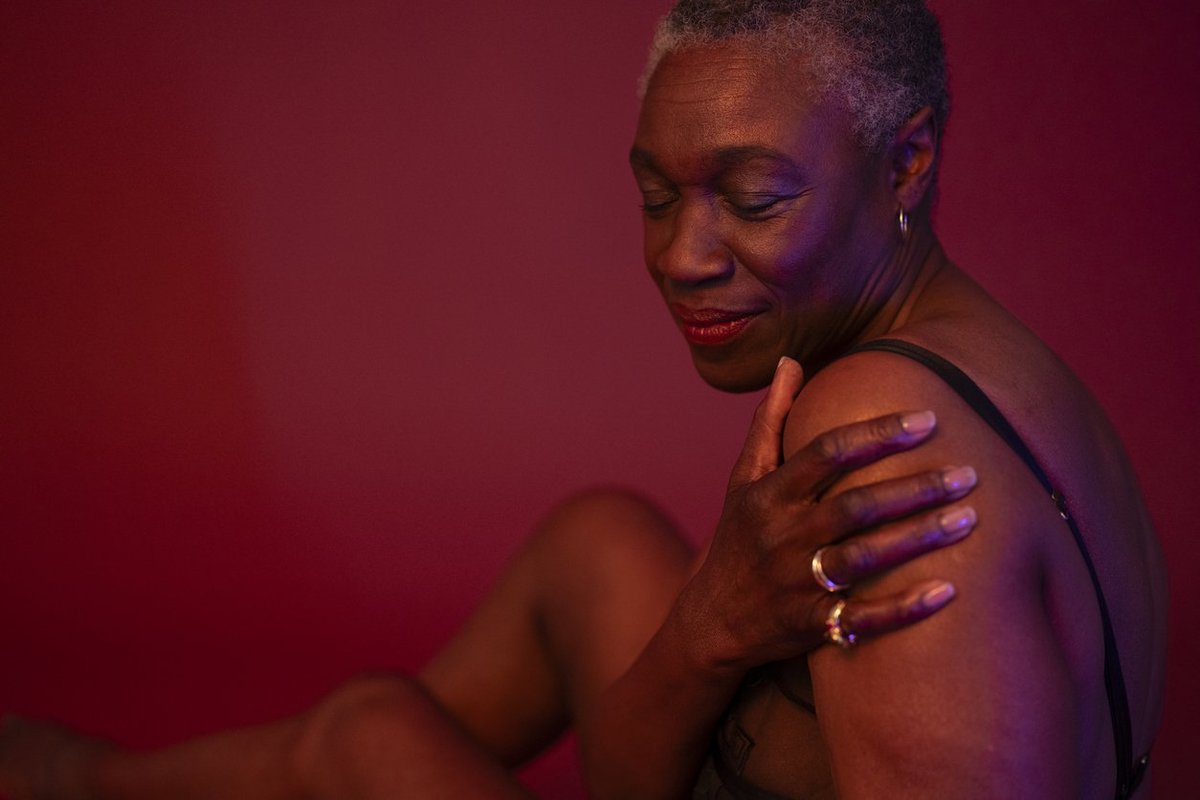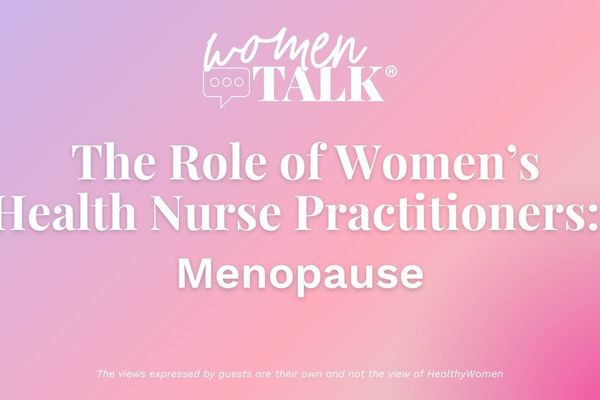Emily Jamea, Ph.D., is a sex therapist, USA Today Best-Selling author and podcast host. You can find her here each month to share her latest thoughts about sex.
I was recently sucked into the novel “All Fours” by Miranda July. The story follows an unnamed perimenopausal woman who, upon the realization that her hormones are about to plummet and looming fear that she will become sexually obsolete, boldly breaks free from the confines of domesticity and gender norms. I couldn’t put it down.
One of my friends shared a New Yorker article that talked about July’s novel as well as others that have come out in recent years that point to a similar theme — women in midlife are starting to wake up. “I love that women are finally giving themselves permission to have a midlife crisis,” I told my friends. The female midlife crisis is having a moment, and, as a sex and relationship therapist, I feel called to reflect on this movement.
There has (finally!) been a surge of attention to menopause in the past couple of years. It’s a topic that’s garnered a lot of attention on social media, and PBS recently released The M Factor, a documentary that focuses on new science surrounding menopausal care.
Women are sick and tired of feeling marginalized by doctors who neglect their health and well-being. And, health issues aside, they refuse to go on pretending that they’re completely uninterested in sex later in life.
While I was writing my new book, “ Anatomy of Desire: Five Secrets to Create Connection and Cultivate Passion,” I interviewed many women about what makes sex great through every season in life. Menopause didn’t stop my research participants from feeling sexual. In fact, most of them were pleasantly surprised to discover an improvement in how they felt sexually during the midlife years. They cited things like feeling more comfortable in their own skin, increased ability to assert their wants and needs, and a partner who collaborated with them to keep things interesting. And I’ve counseled many women in midlife who experience a surge of sexual interest after leaving unhealthy marriages. All this to say that the hormonal shift during midlife does not have to spell the end of sexual vitality.
Read: 9 Ways Menopause Can Give Your Sex Drive a Boost >>
While the theme in recent novels centers around women experiencing a midlife crisis, upon reflection, I think it is better we think of it as a sexual awakening. The latter implies more agency, in my opinion. And I don’t think women necessarily need to seduce a young man to get a sexual thrill — though there’s nothing wrong with that.
The “Adaptability” chapter in my book is filled with information about maintaining a strong sexual connection despite change over the course of one’s life, but here are a few quick tips.
1. Reassess your sexual values. Most people don’t spend time reflecting on the thoughts, feelings and beliefs they hold about sexuality. Many of us internalize messages that were put on us by society, culture, upbringing and religion. Ask yourself questions like, What do I need to experience to feel sexually satisfied? How would I like to be treated before, during and after sex? How far am I willing to go to keep things exciting? How do I see the relationship between love and sex? Have any of my thoughts or feelings evolved over the last 15 years?
2. Involve your partner. Ask your partner if they’d be willing to have a check-in about the quality of your sex life. It’s fine to open the conversation with something along the lines of, I feel awkward bringing this up, but I realize we haven’t had a sit down to exchange our thoughts and feelings about the quality of our sex life. I know it’s important to keep this part of our relationship strong. I imagine we’ve both changed a bit over the years, and I think it would be a good idea to see if there are any adjustments we need to make.
3. Embrace new experiences together. Many couples in midlife find excitement by trying new things together. This doesn’t have to mean anything dramatic.Even small shifts in routine can help create novelty and foster a sense of exploration. You might consider trying new activities, experimenting with different forms of touch or exploring fantasies. Think of it as keeping curiosity alive. Studies show that couples who try new things together tend to report greater satisfaction and connection, which can carry over into their sex lives.
4. Focus on sensuality over sexuality. Sexuality and sensuality are often intertwined, yet focusing on sensuality can open up pathways to intimacy that feel less pressured. Explore touch, connection and closeness without necessarily aiming for sexual intercourse. Massage, cuddling or even a slow dance can build intimacy without performance expectations. For many people, enjoying sensuality can be a way to reconnect with their bodies and each other, especially during times of physical or hormonal change.
5. Stay open to redefining intimacy. Redefining what intimacy means to both partners can be empowering. Intimacy doesn’t always have to look like it did in one’s 20s or 30s. Exploring how it has changed may take pressure off maintaining rigid expectations. This openness allows space for evolving needs and desires, whether they’re emotional, physical or sexual.
As more women embrace midlife, they’re discovering a new vitality and depth in their relationships and sexuality. By redefining intimacy, reassessing values and exploring new possibilities, they’re creating space for authentic connection that transcends conventional boundaries and stereotypes.
Whether you’re just starting to explore this stage or deep into your journey, remember that there is no single “right” way to experience a midlife sexual awakening. In the end, it’s about what feels empowering, satisfying and true to you.
- Menopause and Your Sexual Health: When Dryness Equals Discomfort ›
- Sex Doesn't Have to End With Menopause ›
- 9 Ways Menopause Can Give Your Sex Drive a Boost ›
- Yes, There Is Sex After Menopause ›
- How to Have the Best Sex of Your Life After Menopause ›
- Good Sex with Emily Jamea: Sex During Menopause Can Be Hot, Hot, Hot ›







